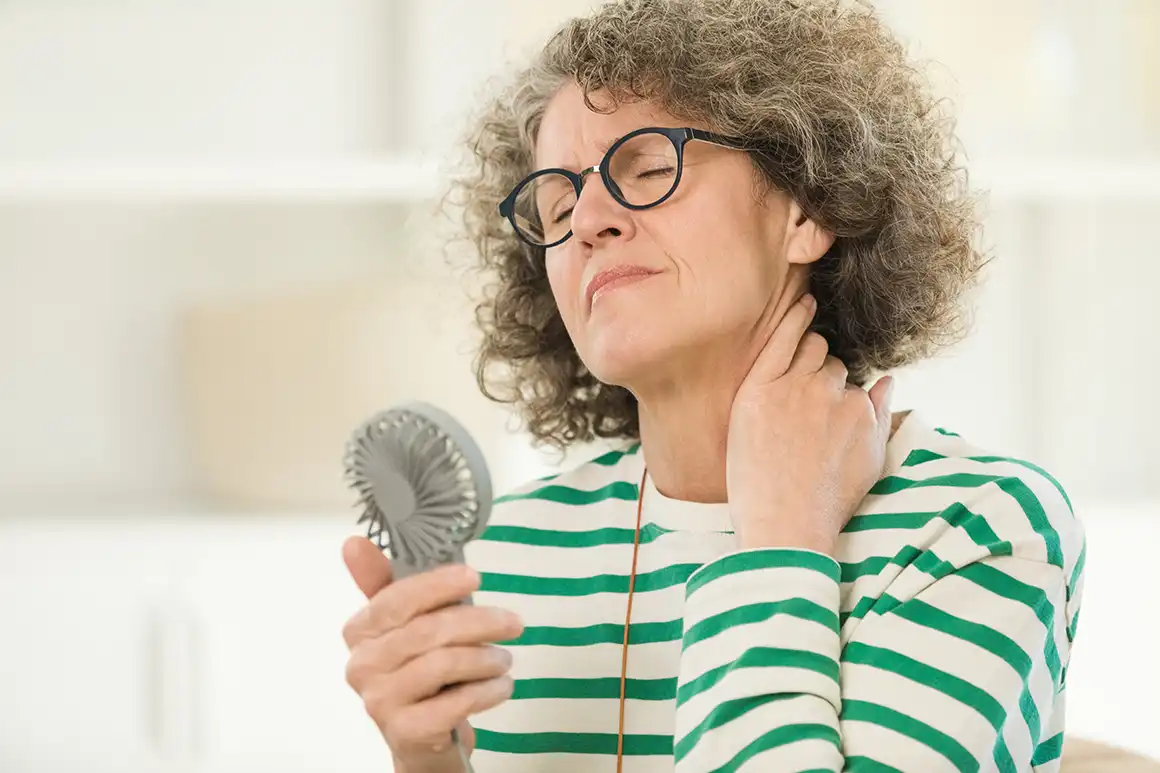
Seven inevitable changes that appear with menopause and how to address them
Lower levels of oestrogen cause hormonal changes and symptoms of menstruation that have an impact on a number of aspects of our health.
The human body is constantly changing, adapting to the different stages of life. In the case of women, one of the most significant processes is menopause, a natural transition that marks the end of the reproductive cycle. According to the Spanish Ministry of Health, menopause is a natural stage, defined by the permanent cessation of menstruation due to hormonal changes. It is not a disease or a disorder, but it can be accompanied by physical and emotional changes; These are the symptoms of menopause, which can impact on women's quality of life.
When does menstruation usually start?
This stage can be diagnosed after 12 months without menstruation, vaginal bleeding, or spotting. Generally, it occurs between the ages of 45 and 55, although it can vary depending on each person.
During this stage, the body undergoes important hormonal changes, especially the decrease in oestrogen, which has an impact on a range of aspects of our health. The symptoms of menopause don't just affect the body, but also the mind and emotions, generating an all-encompassing impact on quality of life.
The Most Common Changes During Menopause (and How to Manage Them)

Hot flushes and night sweats
1 of 7
The well-known “hot flushes” are one of the most characteristic symptoms. They are caused by a drop in oestrogen and can be accompanied by sweating, palpitations or sleep disturbances.
What helps: Hormone replacement therapy (HRT) is often the most effective treatment, always under medical supervision. Lighter clothing, cool drinks and relaxation techniques such as yoga or deep breathing can also help. Avoiding alcohol, tobacco and spicy foods may reduce their frequency.

Weight gain and metabolic changes
2 of 7
During this stage, the metabolism slows down and the body tends to store fat, particularly around the abdomen.
What helps: follow a balanced diet rich in fruit, vegetables, lean proteins and omega-3, combined with regular exercise(walking, swimming, Pilates or yoga). Avoid ultra-processed foods, saturated fats and excess sugar. If weight gain is significant, consulting an endocrinologist or nutritionist may be advisable.

Vaginal dryness and urinary discomfort
3 of 7
Falling oestrogen levels can affect the vaginal mucosa, causing dryness, itching or pain during intercourse, and increasing the risk of urinary infections.
What helps: vaginal moisturisers or lubricants can provide relief. In more severe cases, local HRT (creams or vaginal tablets) can restore elasticity and reduce discomfort. Maintaining regular sexual activity promotes blood flow and vaginal health.

Bone loss and osteoporosis risk
4 of 7
Oestrogen plays a vital role in bone health. Its decline increases the risk of osteoporosis and fractures.
What helps: include calcium, vitamin D and omega-3 in your diet, get moderate sun exposure and practise weight-bearing exercise such as walking, dancing or light strength training. In some cases, the doctor may recommend supplements or specific medication.

Changes to skin and hair
5 of 7
Skin may become drier and lose elasticity, while hair can become thinner or more fragile.
What helps: stay well hydrated, use creams with hyaluronic acid or collagen, and protect your skin from the sun. A diet rich in antioxidants (berries, nuts, olive oil) helps to keep skin firm and glowing.

Sleep disturbances
6 of 7
Insomnia or frequent awakenings are common, especially during perimenopause.
What helps: maintain regular sleep routines, avoid screens before bedtime and create a relaxing atmosphere. If the problem persists, non-hormonal treatments or occasional medication under medical supervision can be considered. Meditation and acupuncture may also help.

Emotional and cognitive changes
7 of 7
Hormonal shifts, combined with family or work responsibilities, can lead to anxiety, irritability, sadness or trouble concentrating.
What helps: regular physical activity, mindfulness and psychological support can make a big difference. Keeping a social life, sharing experiences with other women and dedicating time to leisure also improve emotional well-being.




